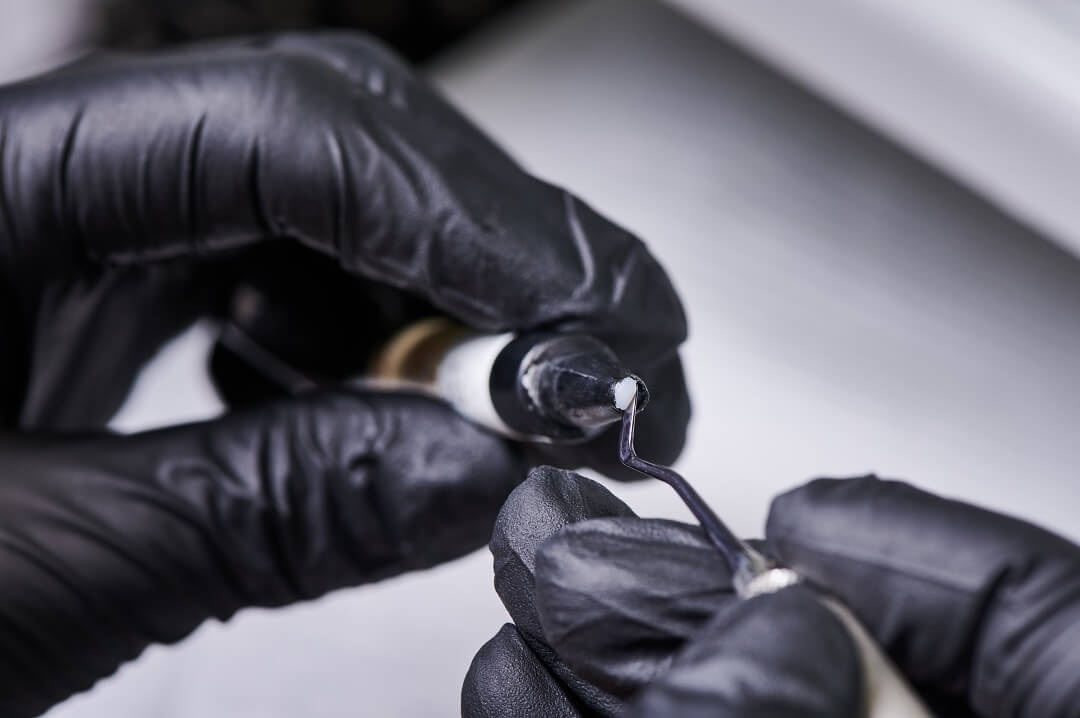Whether you are looking to address damage to a single tooth or looking to improve the look of your smile, dental bonding is a dental treatment that can help you achieve those goals. Bonding adds a putty-like resin to the surface of your teeth that can help address a damaged tooth. This can include cracked or chipped teeth, spaces between teeth, extending the length of a tooth, or simply adjusting the overall appearance of the tooth.
But how long does bonding last? Tooth bonding, a popular cosmetic dental procedure, typically lasts between 3 to 10 years. This timeframe can vary significantly based on several factors, including the quality of materials used, the expertise of the dentist, and your personal oral hygiene habits.
In this article, you’ll learn precisely what affects the longevity of tooth bonding and how to maximize its lifespan. We’ll explore critical aspects such as the choice of materials, the impact of your daily habits, and essential maintenance tips. By understanding these elements, you can ensure that your tooth bonding remains in top condition for as long as possible.
Everyone wants their dental treatments to be a worthwhile investment. We all seek that perfect balance between cost and lasting aesthetic appeal. That’s why it’s crucial to know not only how long your tooth bonding will last but also what you can do to preserve its condition and appearance.
Key Takeaways
- Dental bonding improves your teeth’s shape, size, and color, and can fix damage. It uses a resin added to your teeth.
- Tooth bonding generally lasts 3 to 10 years. How long it lasts depends on the material used, where the bonding is on your teeth, and how you take care of your teeth.
- The type of bonding, tooth location, and your daily habits like tooth grinding can affect how long the bonding lasts.
- Good oral hygiene, like brushing and flossing, helps keep your dental bonding in good shape for a longer time.
- Choosing a skilled dentist is key. They pick the right bonding material and apply it carefully, which makes your bonding look natural and last longer.
The average lifespan of tooth bonding
With proper care and good oral hygiene habits, direct tooth bonding has an average lifespan of three to 10 years. If you are looking for a longer-lasting solution, indirect bonding that uses inlays, onlays, or veneers, may offer a better option as they can last anywhere from 10 years to decades with proper care.
Factors that affect the longevity of teeth bonding
While dental bonding is designed to last three to ten years, the actual lifespan depends on various factors. This can include what type of bonding and bonding material you have, which tooth or teeth have been treated, your overall oral health, and your personal habits, such as grinding your teeth.
Here we take a closer look at these factors and how they can affect your teeth.
1. Composite Bonding Used
For dental bonding or direct bonding, the dentist applies a combination of composite resin material directly to the tooth and, once in place, hardens it into its final form with a curing light. The specific material and the curing time can affect the outcome and the life of the composite bonding material. For example, if even a small section of the tooth and composite material did not receive proper curing, it may become loose over time and require early replacement.
In addition to direct bonding to the tooth, you may opt for indirect bonding or adhesive bonding and use dental veneers, inlays, or onlays. In this case, the dentist begins by etching the treated tooth. They then apply a bonding agent and adhesive before attaching inlays, onlays, or porcelain veneers into place and solidifying the connection with a curing light. If you are looking for an even longer solution, inlays and onlays offer a lifespan of around 10 to 15 years, while veneers can last much longer decades when taken care of properly.
2. Tooth Location
The location of your treated tooth or teeth can also affect the lifespan of your dental bonding. Chewing and biting foods can affect the lifespan of your teeth due to repeated pressure. If you have multiple teeth with bonding, for example, and grind your teeth, you may notice that dental bonding on those teeth has a shorter lifespan.
3. Overall oral health
A poor oral hygiene routine and poor overall oral health can also shorten the lifespan of your dental bonding. Following a regular oral hygiene routine that includes brushing twice a day and flossing helps to keep your teeth healthy and extend the life of the bonding material.
4. Personal habits
Personal habits, including your oral hygiene routine, can affect its lifespan. Eating hard foods like nuts and hard candy can loosen bonding material and weaken the composite material. Overnight tooth grinding, or bruxism, can also put extensive pressure on the tooth and bonding material, affecting the life of your bonded tooth.
5. The Dentist’s Expertise
The expertise of your dentist plays a crucial role in determining the success and longevity of your tooth bonding. A skilled dentist doesn’t just apply the bonding material; they carefully consider the intricacies of your teeth, such as their shape, color, and overall oral health. This precision is essential for ensuring that the bonding not only looks natural but also functions effectively and lasts longer. When selecting a dentist for your tooth bonding procedure, it’s vital to choose someone with a strong background in cosmetic dentistry and a track record of successful bonding procedures. Don’t shy away from asking for before-and-after photos of their previous work to gauge their expertise.
In addition to their skill in performing the procedure, a dentist’s knowledge in choosing the right bonding material is equally important. Different materials have varying levels of durability and aesthetic appeal, and the right choice can significantly impact the lifespan of your tooth bonding. An experienced dentist will also stay updated with the latest advancements in dental materials and techniques, ensuring that you receive the most effective and advanced treatment. This continuous education is a testament to their commitment to providing the best care possible. When consulting with your dentist, discuss the types of materials available and how they align with your expectations, such as color matching and durability. Remember, a good dentist not only enhances the appearance of your teeth but also ensures their long-term health and functionality.
When do you need to replace dental bonding?
Your bonded teeth should look and feel like your natural ones. If you notice small changes in the appearance of your tooth or feel bumps or sharp edges, it may be time to call your dentist to repair or replace existing composite material. Don’t delay when you notice these changes, as damage or wear and tear on the bonding material can put your natural tooth at risk of chipping or other damage. A loose bonding can also allow food particles and bacteria to become trapped against your tooth surface, making you more vulnerable to tooth decay.
Tips to help extend the life of dental bonding
While we have already mentioned that good oral hygiene is essential to extending the life of your tooth bonding, as well as helping to promote good overall oral health, these tips can also help keep your dental bonding in good condition.
-
- Attend regular dental checkups. Not only does regular dental care help keep your teeth healthy and allows the dentist to identify potential concerns with tooth bonding and address them before they become a problem.
- Avoid chewing on hard objects. This includes food such as nuts and hard candy, but it can also include pens and pencils, fingernails, and ice cubes.
- The composite material can stain, causing discoloration of your tooth bonding. Avoid eating and drinking items that can stain, such as tea, coffee, wine, and berries. Consider drinking these beverages with a straw to avoid contact with the teeth, or brush your teeth soon after drinking or eating these items.
- If you have tooth bonding to address wear and tear on your teeth due to teeth grinding, the same damage can happen with your tooth bonding. Talk to your dentist about wearing a night guard to protect your teeth and tooth bonding from regular grinding.
Keeping your smile shining bright
Tooth bonding is a cost-effective and quick solution to help repair minor tooth damage, address tooth length and shape concerns, cover chips, and cracks, and improve the overall appearance of your smile. By understanding the factors that influence its longevity, you can take proactive steps to ensure your bonded teeth stay in great condition for as long as possible.
Remember, the lifespan of your dental bonding largely depends on the type of bonding used, the location of the treated teeth, your overall oral health, and your personal habits, such as diet and oral hygiene.
Regular dental checkups, avoiding hard foods, and proper oral hygiene are crucial for maintaining the integrity of your bonding. Additionally, selecting a dentist with the right expertise and commitment to using quality materials can make a significant difference in the outcome and durability of your dental bonding.
Dental bonding is not just a dentistry procedure; it’s an investment in your smile and confidence. With the right care and attention, this investment can yield long-lasting results, keeping your smile bright and beautiful for years to come. If you’re considering dental bonding or need advice on maintaining existing bonding, don’t hesitate to reach out to your dental professional. They are your best resource for ensuring that your smile stays healthy and vibrant.
Addressing all your dental bonding concerns
Whether you already have tooth bonding that may need replacement or are considering other cosmetic dentistry treatments, the team at Soundview Family Dental is here to help you achieve the beautiful smile you are looking for.
To learn more about our cosmetic services and how we can help, contact us online or call us at (425) 563-6360.


